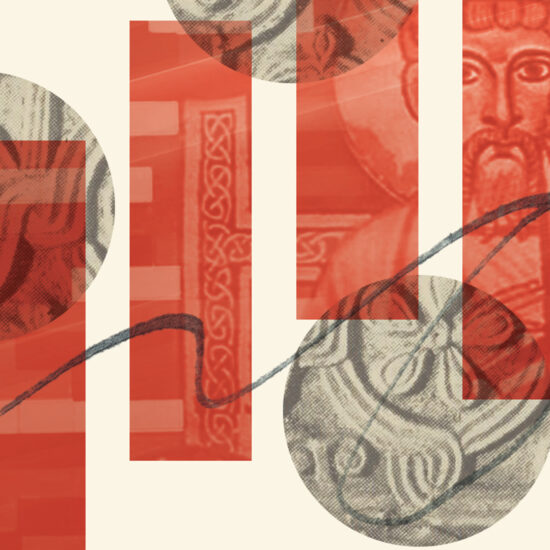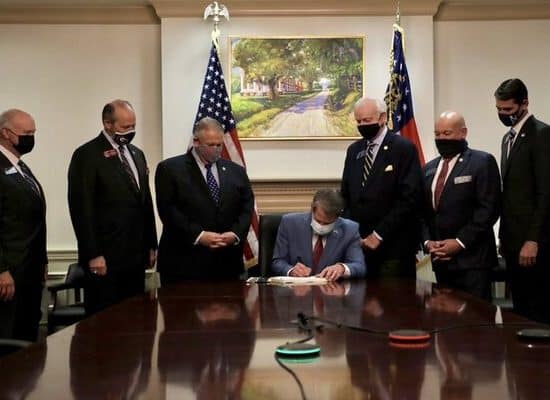
 Let Us Hold Fast
Let Us Hold Fast
Formations: April 26, 2020
Scripture: Hebrews 10:19-25

Michael K Olmsted
Hebrews is different from the other New Testament letters in that it has no stated connection to a specific congregation and only one brief reference: “Those from Italy send you greetings” (13:24) and no identified author. Scholars continue to theorize about its author as far back as the fifth century A.D. Clement of Alexandria believed that Paul originally wrote the letter in Hebrew and Luke translated it into Greek for greater circulation.
Whoever the writer, he was a scholar of Jewish tradition and theology who understood Jesus Christ is the ultimate revelation of God’s love and grace. Hebrews is not written in a letter format but as a carefully structured sermon addressed to Jewish Christians who embraced Jesus Christ as God’s promised Messiah for all the world. Scholars have described Hebrews as written in the purest and best Greek of all the New Testament documents.
The writer is focused on the negative influence of the predominant culture those early believers faced. He reminds them of “so great a cloud of witnesses surrounding us … let us run with endurance the race that is set before us, fixing our eyes on Jesus, the author and perfecter of faith, who for the joy set before Him endured the cross, despising the shame, and has sat down at the right hand of the throne of God” (12:1-2).
As the end of that first century approached, so much was changing: the first generation of believers were dying, Rome was facing increased internal political divisions, Jerusalem and the Temple would be destroyed in 70 A.D., most of the original disciples were dead, and the common expectation that Christ would return with an army of heavenly angels seemed remote. Hebrews calls the church back to the powerful image of God’s unstoppable grace and promises. Jesus is the center of our hope: “since we have confidence to enter the sanctuary (very presence of God) by the blood of Jesus … that he opened for us through the curtain (that is through his flesh) and since we have a great high priest over the house of God … let us now approach with a true heart in full assurance of faith” (vv.19-20).
This hope is shaped by the image of the temple and sacrifices made by priests, reminding those early believers, and us, that the ancient rituals and sacrifices were only a shadow of God’s love for us – and who we can become in Christ. The ribbon of hope that runs through Hebrews is sacrifice, the Christ who gave himself for us.
No matter in what century Hebrews is read, God offers all believers the courage to keep on. There are three motivational thoughts offered as encouragement to believers wherever and whenever we face the challenges of the world, and those encouragements begin with “let us.”
“Let us approach (God) with a true heart” (v. 22). The writer uses images from Jewish ritual practices: “our hearts sprinkled clean from an evil conscience, and our bodies washed with pure water” (v. 22). The contrast is clear that our hope and salvation in God comes not from the ancient rituals, but from the Son of God who now takes the place of tradition and law keeping. Because of Christ we now stand in the very presence of the living God.
“Let us hold on to the confession of our hope” (v. 23). You can observe every imaginable ritual, offer generous sacrifices, memorize wonderful religious truths, but your hope is found in simply in believing what Jesus has promised and proved by his death and resurrection. Those early believers knew they were not prefect and that the threats of the world were real, but their hope (and our hope) is always in the risen Christ.
“Let us consider how to provoke one another to love and good deeds” (v. 24). The writer reminds us that we are not alone. We are part of God’s family, bound together by grace. The word “provoke” has a lot more insistence than “encourage.” Church is not about membership in a worthwhile club: it’ is about encouraging, loving, and sometimes confronting fears, apathy, and exclusivity. The family of faith is where we learn together, remind ourselves how we are to live, confront our weaknesses and failures, and seek God’s leading. We are siblings in the family of God and sometimes the family is not perfect. Without Christ as our center we can never be the people of God.

Photo by Aaron Burden on Unsplash
Our modern times reflect too much of the world’s influence over the organization called church. We celebrate size, organization, media exposure, political involvements, and prosperity theology. These are the world’s prizes! The good news of Jesus Christ is too much swallowed up in the world’s desires.
The writer reminds us that our gathering together must be about “encouraging one another,” which means calling us back to a truly different life in Christ, “all the more as you see the Day approaching.” There will be a day when this world will be concluded and Christ will return (v. 25). Hebrews was not included in the New Testament merely as a record of the first century church’s struggles, but as a call for God’s people in every generation to be the presence of Christ.
How are we doing with this “new and living way”? Are we fitting into the cultural norms, and compromising faith with politics? These reduce Christianity to a “religious club” status that pays more attention to feeling good than Christ-like love and values. Our century is no different than any other because the heart of humanity still longs to eat the forbidden fruit in the Garden of Eden. The words of the hopeful and powerful book called Hebrews call us back to the love and grace of God, to the Christ who gave his life for us, to a faith that changes us within and empowers us to live out our faith until the Savior comes again.
Formations is a curriculum series from Smyth & Helwys Publishing, Inc. through NextSunday Resources.
The PDF download requires the free Acrobat Reader program. It can be downloaded and installed at https://get.adobe.com/reader (uncheck optional offers first).




